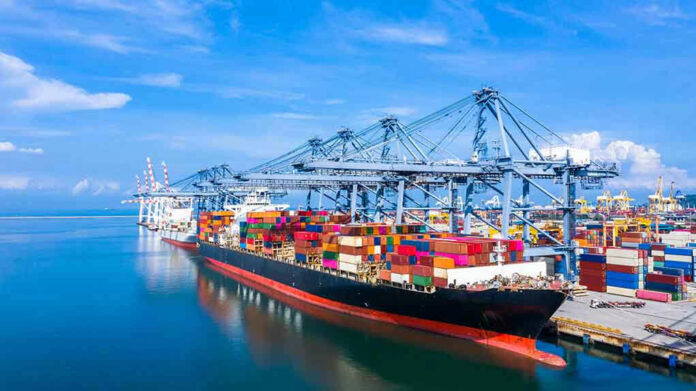
Trump’s 30% tariff blitz on the EU and Mexico is sending shockwaves through global trade—and it’s about time Washington put American interests first, no matter how much elite bureaucrats in Brussels and DC clutch their pearls.
At a Glance
- President Trump announced a sweeping 30% tariff on imports from the European Union and Mexico, effective August 1, 2025.
- The tariffs target everything from vehicles and machinery to agricultural and consumer goods, with immediate consequences for prices and supply chains.
- EU dropped its controversial digital tax plans in a bid to negotiate, while Mexico faces penalties over alleged inaction on fentanyl trafficking.
- Business leaders warn of price hikes and retaliation, but supporters argue American jobs and industries finally get long-overdue protection.
Trump’s Tariff Sledgehammer: Finally, the U.S. Fights Back
President Trump made it official on July 12, 2025: a 30% tariff is coming down on the heads of the EU and Mexico. The reason? The same old story—trade deficits, unfair practices, and, in Mexico’s case, a staggering failure to clamp down on fentanyl flowing over our border. For decades, globalists let foreign bureaucrats and corporate lobbyists dictate the rules, handing out sweetheart deals while American workers and families paid the bill. Now, the U.S. is finally wielding the tools of economic self-defense, and the hand-wringing from Brussels to Mexico City is deafening.
The tariffs, set to take effect August 1, are not just a shot across the bow—they’re a full-on offensive. Trump’s move comes after months of fruitless negotiation and escalating frustration with both partners. The EU’s pet digital tax scheme—a blatant cash grab targeting U.S. tech—was dropped just days before the announcement, an obvious attempt to avoid the tariff hammer. Mexico, meanwhile, is in the crosshairs for what Trump describes as “insufficient action” against the drug cartels poisoning our communities with fentanyl. The message is unambiguous: play fair, enforce your side of the bargain, or lose privileged access to the world’s most lucrative market.
Who’s Feeling the Heat? Industry, Allies, and America’s Forgotten Workers
EU and Mexican exporters—along with the American businesses hooked on cheap foreign goods—are howling about higher costs and supply chain chaos. But for too long, these same interests shrugged while U.S. factories shuttered and jobs vanished. Trump’s tariffs target a massive swath of goods: vehicles, machinery, electronics, agriculture, pharmaceuticals—the list goes on. The EU, which loves to lecture Americans on everything from climate to “fairness,” is now scrambling to avoid a trade war. Mexico’s President Claudia Sheinbaum is under intense pressure to show results at the border, though so far it’s just more talk and little action.
U.S. consumers are being warned about price increases, particularly on cars, electronics, and groceries. But let’s get real: Americans have been absorbing the hidden costs of unfair trade for years—lost wages, shuttered towns, and the hollowing out of industries that built the middle class. If a temporary spike in prices is the price of reclaiming economic sovereignty, many see it as a long-overdue correction. Business lobbies are already leaning on Congress to intervene, but with Trump’s base demanding results, the political winds have shifted dramatically since the days of bipartisan “free trade” groupthink.
Retaliation, Negotiation, and the Road Ahead
The EU is signaling a willingness to negotiate, dropping digital tax plans and floating the possibility of targeted deals before the August 1 deadline. Mexican officials continue to deny U.S. accusations about fentanyl, but pressure is mounting. Trump’s administration has made it clear: any retaliation will be met “swiftly and severely” with further tariffs. This isn’t the polite, apologetic Washington of yesterday—this is a White House that’s had it with being the world’s economic punching bag.
Trade experts, most of whom have never missed a cocktail hour in Davos, are wringing their hands about “retaliatory cycles” and the risk to the so-called “rules-based order.” But history shows that when America gets tough, adversaries blink. Even now, other countries are lining up to cut new deals—just ask the UK and Vietnam, who recently inked trade pacts to avoid the tariff crossfire. The message to the world is clear: respect American laws, clamp down on crime, and negotiate in good faith—or pay a steep price.












